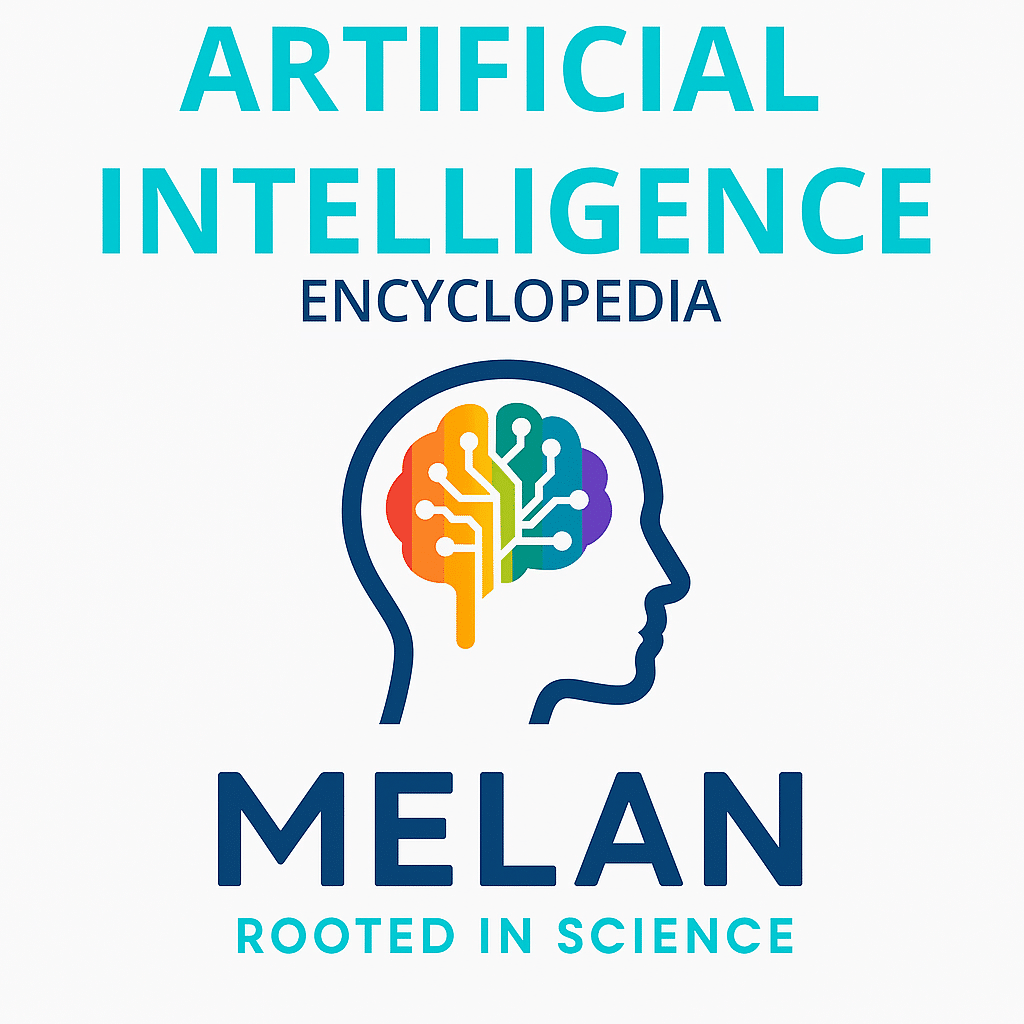GDPR refers to the General Data Protection Regulation, a comprehensive data privacy law enacted by the European Union in 2018 that fundamentally transformed how personal data is collected, processed, and protected globally. This regulation grants individuals extensive rights over their personal information while imposing strict obligations on organizations that handle EU residents’ data, establishing the world’s most influential privacy framework with enforcement powers that include fines up to €20 million or 4% of global annual revenue.
GDPR
|
|
|---|---|
| Category | Data Protection Law, Digital Rights |
| Subfield | Privacy Regulation, Information Security, Technology Policy |
| Geographic Scope | EU/EEA, Global Extraterritorial Effect |
| Enforcement Date | May 25, 2018 |
| Maximum Penalties | €20 million or 4% of global annual turnover |
| Sources: Official GDPR Text, European Data Protection Board, GDPR Portal | |
Other Names
General Data Protection Regulation, EU Data Protection Regulation, Regulation (EU) 2016/679, European Privacy Law, Data Protection Directive Successor, Brussels Effect Privacy Law
History and Development
GDPR originated from the European Union’s recognition that the 1995 Data Protection Directive was inadequate for the digital age, particularly as internet services and data processing capabilities expanded dramatically in the 2000s. The European Commission began developing new legislation in 2010, releasing initial proposals in 2012 after extensive consultation with stakeholders including privacy advocates, technology companies, and member state governments.
The regulation underwent four years of intense negotiation and lobbying, with significant input from American tech companies concerned about compliance costs and privacy advocates pushing for stronger protections. Key turning points included the 2013 Edward Snowden surveillance revelations and the 2015 Schrems I ruling that invalidated the EU-US Safe Harbor framework. GDPR was formally adopted in April 2016 with a two-year implementation period, taking effect on May 25, 2018, and immediately becoming the world’s most influential privacy law.
How GDPR Works
GDPR operates through a framework of individual rights, organizational obligations, and regulatory enforcement that applies to any organization processing personal data of EU residents regardless of where the organization is located. Individuals gain rights including access to their data, correction of inaccuracies, erasure of information, data portability, and objection to processing.
Organizations must obtain explicit consent for data processing, implement privacy by design principles, conduct data protection impact assessments for high-risk processing, and appoint data protection officers when required. The regulation requires clear privacy notices explaining data use, mandatory breach notifications within 72 hours, and demonstration of compliance through documentation and accountability measures.
Enforcement occurs through national data protection authorities in each EU member state, coordinated by the European Data Protection Board for consistency across the union.
Variations of Data Protection
Personal Data Processing
Comprehensive protection for any information relating to identified or identifiable individuals, including names, email addresses, IP addresses, location data, and online identifiers, with special protections for sensitive categories like health and biometric data.
Cross-Border Data Transfers
Strict requirements for transferring personal data outside the EU, including adequacy decisions for countries with sufficient protection levels, appropriate safeguards like binding corporate rules, and specific derogations for limited circumstances.
Accountability and Governance
Organizations must demonstrate compliance through comprehensive documentation, regular audits, staff training, and privacy management programs that embed data protection throughout business operations and decision-making processes.
Real-World Applications
GDPR affects websites and mobile apps that must obtain clear consent for cookies, tracking, and data collection while providing transparent privacy notices and easy opt-out mechanisms. Social media platforms have redesigned their data practices, giving users detailed control over personal information sharing, advertising preferences, and account deletion options. Healthcare organizations must ensure patient data protection while enabling medical research and treatment, implementing strict access controls and consent management systems.
E-commerce companies have overhauled their data handling practices, providing customers with detailed information about data use and enabling easy access to personal information and purchase histories. Cloud computing providers have developed GDPR-compliant services with data residency options, encryption standards, and contractual frameworks that help customers meet their own compliance obligations.
GDPR Benefits
GDPR empowers individuals with meaningful control over their personal data, enabling them to understand what information organizations collect and how it’s used while providing mechanisms to correct, delete, or transfer their data. The regulation has increased transparency in data processing practices, forcing organizations to clearly explain their data use and obtain genuine consent rather than burying permissions in lengthy terms of service. It has improved data security standards globally as organizations implement stronger technical and organizational measures to protect personal information and prevent breaches.
GDPR has created competitive advantages for privacy-focused businesses while leveling the playing field by imposing consistent requirements on all market participants. The regulation has influenced privacy legislation worldwide, establishing Europe as a global leader in digital rights and inspiring similar laws in California, Brazil, and other jurisdictions.
Risks and Limitations
Compliance Complexity and Implementation Costs
GDPR’s broad scope and complex requirements create significant compliance challenges, particularly for smaller organizations that lack legal expertise and resources to implement comprehensive data protection programs. Determining the legal basis for processing, conducting impact assessments, and maintaining detailed documentation require substantial investment in legal consultation and technical infrastructure. The regulation’s extraterritorial scope creates compliance obligations for organizations worldwide that may lack understanding of European legal concepts.
Enforcement Inconsistencies and Jurisdictional Issues
Despite coordination mechanisms, enforcement varies significantly across EU member states, with some data protection authorities being more active and others lacking resources for effective oversight. The “one-stop-shop” mechanism intended to streamline enforcement has created delays and inconsistencies when multiple authorities disagree on enforcement approaches. Cross-border investigations and penalty decisions often take years to resolve, reducing the regulation’s deterrent effect.
Innovation and Economic Impact Concerns
Critics argue that GDPR’s strict requirements stifle innovation by making it difficult to develop new digital services and AI technologies that rely on personal data. Compliance costs disproportionately affect smaller companies and startups, potentially consolidating market power among large tech companies that can afford comprehensive compliance programs. Some argue the regulation has reduced European competitiveness in the global digital economy.
Global Trade and Digital Sovereignty Tensions
GDPR’s extraterritorial reach has created tensions with other jurisdictions, particularly the United States, over data transfer restrictions and conflicting legal requirements. The regulation’s impact on international business operations has led to disputes over data localization requirements and digital sovereignty. These regulatory changes stem from legal pressure following major data breaches affecting millions of Europeans, market demands from citizens increasingly concerned about privacy violations and surveillance capitalism, reputation management after revelations about social media manipulation and political advertising, and investor concerns about data protection liability and regulatory risk.
Stakeholder Implementation and Market Transformation
Privacy advocates, civil liberties organizations, European citizens, and data protection authorities drive enforcement and interpretation of GDPR requirements, while technology companies, advertising networks, and business associations influence implementation guidance and lobby for practical modifications. Consumer protection agencies, academic researchers, and international organizations monitor the regulation’s global impact and effectiveness. The intended outcomes include giving individuals meaningful control over their personal data, establishing Europe as a global leader in digital rights, forcing transparent and accountable data processing practices, and creating a competitive advantage for privacy-respecting businesses. Initial evidence shows significant changes in global privacy practices, increased investment in data protection technologies, growing user awareness of privacy rights, and substantial regulatory fines for major violations, though comprehensive assessment of long-term impacts continues as enforcement practices mature and evolve.
Current Debates
AI and Automated Decision-Making Regulation
Legal experts and technologists debate how GDPR’s provisions on automated decision-making apply to modern AI systems, particularly regarding rights to explanation for algorithmic decisions and meaningful human involvement in AI-powered processes. The relationship between GDPR and the EU AI Act creates complex overlapping requirements for AI systems processing personal data.
International Data Transfer Mechanisms
Following the Schrems II ruling that invalidated Privacy Shield, businesses and regulators struggle with legal mechanisms for EU-US data transfers. Standard contractual clauses and adequacy decisions face ongoing legal challenges, creating uncertainty for international business operations and cloud computing services.
Cookie Consent and Digital Advertising
Privacy advocates and the advertising industry disagree about valid consent mechanisms for cookies and tracking technologies, with ongoing debates about cookie walls, legitimate interests, and the future of targeted advertising under GDPR requirements.
Right to be Forgotten vs. Freedom of Expression
Courts and legal scholars grapple with balancing individual privacy rights against freedom of expression and public interest in information access, particularly regarding search engine results, news articles, and historical records.
Children’s Data Protection and Age Verification
Policymakers debate appropriate age verification mechanisms and parental consent requirements for children’s online services, balancing child protection with practical implementation challenges and potential impacts on adult privacy.
Media Depictions of GDPR
Movies
- The Great Hack (2019): Netflix documentary examining the Cambridge Analytica scandal that influenced GDPR’s development, showing how personal data was harvested and used for political manipulation without consent
- The Social Dilemma (2020): Explores how social media companies collect and use personal data, highlighting the types of practices that GDPR aims to regulate through consent and transparency requirements
- Snowden (2016): Edward Snowden’s (Joseph Gordon-Levitt) revelations about government surveillance programs influenced European thinking about data protection rights that shaped GDPR’s development
TV Shows
- Black Mirror: Episodes like “Nosedive” explore data collection and privacy themes that GDPR addresses, while “Shut Up and Dance” shows consequences of privacy violations that the regulation aims to prevent
- Years and Years (2019): BBC series depicting near-future privacy and data protection challenges in Europe, including regulatory responses to technological advancement
- Industry (2020-present): Shows financial services firms grappling with regulatory compliance including data protection requirements similar to GDPR obligations
Books
- The Age of Surveillance Capitalism (2019) by Shoshana Zuboff: Comprehensive analysis of data collection practices that GDPR was designed to regulate, examining how personal data became a commodity
- Data and Goliath (2015) by Bruce Schneier: Explores government and corporate surveillance that influenced GDPR’s development, advocating for stronger privacy protections
- The GDPR Challenge (2018) by Paul Voigt and Axel von dem Bussche: Legal analysis of GDPR implementation challenges and practical compliance guidance for organizations
Games and Interactive Media
- Papers, Please (2013): Immigration inspector game exploring themes of privacy, data collection, and individual rights versus institutional authority that parallel GDPR’s individual vs. organizational power dynamics
- Watch Dogs series (2014-present): Players navigate surveillance systems and data privacy themes, demonstrating the types of digital privacy violations that GDPR aims to prevent
- Privacy Education Games: Interactive tools and simulations help users understand GDPR rights and help organizations practice compliance decision-making in various data processing scenarios
Research Landscape
Current research focuses on GDPR’s global influence and effectiveness in protecting privacy rights, including comparative studies of privacy laws inspired by the European model. Legal scholars analyze enforcement patterns, penalty decisions, and cross-border coordination mechanisms to understand the regulation’s practical impact. Technology researchers develop privacy-enhancing technologies that enable GDPR compliance, including automated consent management, privacy-preserving analytics, and data protection by design methodologies. Emerging research areas include GDPR’s interaction with artificial intelligence regulation, international data governance frameworks, and the economic impacts of comprehensive privacy legislation on digital markets and innovation.
Selected Publications
- AI Patents Block Life-Saving Drug Discovery
- What is Artificial Intelligence (AI)?
- 60 ChatGPT Prompts for Writing Ad Copy Fast
- What is Digital Marketing?
- Build a Powerful Content Marketing Strategy for Your Wellness Beauty Brand
- What is a “personal hardship” flag in Google Merchant Center?
- Mycorrhizal symbioses and tree diversity in global forest communities
- What is Schema Markup?
- SEO is Outdated, Optimize Your Website for AI
- Google Personal Hardship Alerts Get It Wrong and Mislabel Products
- New case law and liability risks for manufacturers of medical AI
- Stop Training Google to Steal Your Patients with 3rd-Party Analytics
- When Google Misunderstands Your Business and You Rank for Irrelevant Keywords
- Why Does AI Struggle with Context Cues in Language?
- Hello world!
Frequently Asked Questions
What exactly is GDPR?
GDPR is the European Union’s comprehensive data protection law that gives individuals control over their personal data and requires organizations to protect EU residents’ privacy, regardless of where the organization is located.
How does GDPR affect me if I don’t live in Europe?
If you use websites, apps, or services from companies that serve EU customers, you likely benefit from GDPR protections, and many companies have extended GDPR rights globally rather than maintaining separate systems.
What rights do I have under GDPR?
You have rights to know what personal data organizations collect about you, access and correct your information, delete your data in certain circumstances, object to processing, and receive your data in a portable format.
What are the penalties for violating GDPR?
Organizations can face fines up to €20 million or 4% of their global annual revenue, whichever is higher, making GDPR one of the most expensive regulations to violate in the technology sector.
How has GDPR changed the internet and digital services?
GDPR has led to cookie consent banners, clearer privacy policies, easier account deletion options, and more granular privacy controls on websites and apps, while inspiring similar privacy laws worldwide.


